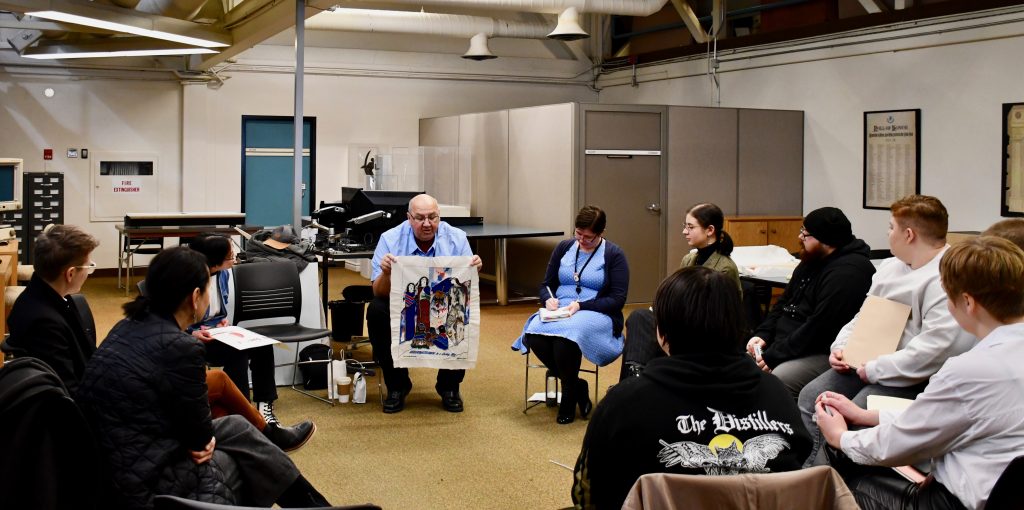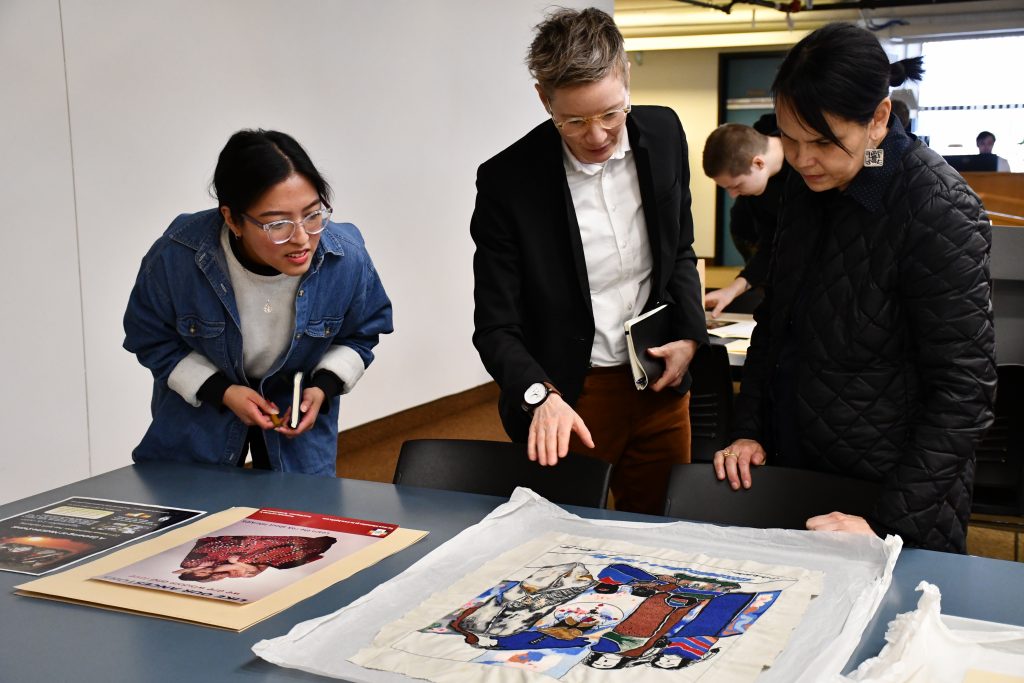For more information on the Two-Spirit Archives, visit the archive’s website.
For more information on the Two-Spirited People People of Manitoba, Inc., visit the organization’s website.

“During my visit to the archive with the Museum Queeries team, I immediately tried to look for the condom-use posters that have been put up on the online archive. These few posters brought me back to my high school sex-ed class and made me think about how different these posters were compared to the class’ white heteronormative curricula, making it all the more apparent to me that there are some bodies and histories that are not included or even talked about when it comes to discussions about sex. My favourite poster (if I had to choose) was the “2 Spirit Men Know About: Cultural Survival” poster. This poster packed a punch! It managed to bring up the double entendre of cultural survival, the topic of colonialism, and safe sex all in one, while managing to be humorous, too.” — Mika Castro
“Before we began engaging with any archived materials at the Two-Spirit Archives, Albert McLeod offered stories and knowledge about his experiences as a Cree, Métis, Two-Spirit person, naming his relationships to and movement between Norway House, Winnipeg, and the West Coast. Engaging with the Two-Spirit archive alongside McLeod’s knowledge seemed to enliven each photograph, poster, poem, and written document I interacted with. While these pieces evoke a potent history of Two-Spirit resistance, community, and celebration on their own, they are too embodied with memory and place specific to McLeod’s life—a reminder that behind each individual archived material lies knowledge and history that can only be understood, or experienced through conversation.” — Dallas Cant
“What a treasure! The Two-Spirit Archives is more than just a collection of historical objects, it’s a narrative of real lives and experiences. Discovering different pieces of history and creative work in this archive is as exciting as it is illuminating. My favourite pieces are the poetry and yearbooks from different community groups. The world needs more Two-Spirit and queer poetry, especially when written so unfiltered! The collection is additionally brought to life when observed through the lens of historical context. Having had its primary donor, Albert McLeod, give us that context, the collection was twice as enjoyable.” — Amber Ali

“Getting a glimpse into the history of the Winnipeg Two-Spirit community through the Two-Spirit Archive has been a very humbling experience as a Winnipegger who is queer with Indigenous roots. It puts the differences of time into perspective; that we have more opportunities to gather and share knowledge through the use of technology as the Archive is in the process of being digitized. This is important to me as unfortunately not everyone has the ability to access the Archive in person for many reasons such as location, availability and anonymity. Having the Archive’s main donor Albert McLeod present to share his knowledge added an extra layer of meaning to the collection and brought alive the spirit of the pieces. It would be great to expand on this format and have more discussions like these in the future with more knowledge keepers and community members. A piece in the archive I found myself drawn to is an embroidered version of a poster designed by Lita and Leah Fontaine for their brother who had passed from complications due to AIDS. It was through further discussion we learned that the colourful column between the three standing figures is a representation of their brother transitioning to the spirit world.” — Chris Eastman
“When I was asked to read a poem by William (Billy) Merasty to our group which I had selected out of the Two-Spirit Archive, I was struck by the question of what kind of materials archives are meant to collect. Poetry might not seem like the kind of historical document which gives the best factual descriptions of a group’s history. However, reading the poem out loud made me think about how the writer was engaging with language and how that reflected on Two-Spirit history in Manitoba. Merasty took up many words that were used as slurs against Two-Spirit and queer people and played with them to the point of ridicule, thereby taking away the harmful potential of these words and inscribing new meaning into them.” — Misha Falk
